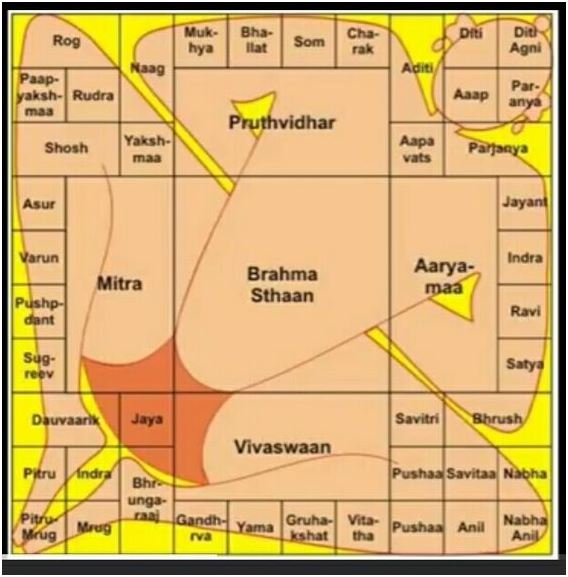Vastu Shastra

Vastu Shastra is an ancient Indian science and traditional Hindu system of architecture. It is a vast body of knowledge that encompasses principles and guidelines for designing and constructing buildings, homes, temples, and other structures.
Key aspects of Vastu Shastra
Origin and Purpose:
Vastu Shastra originated from the Sthapatya Veda, which is a part of the Atharva Veda.
The primary purpose of Vastu Shastra is to create harmonious environments that support the health, happiness, prosperity, and spiritual well-being of the inhabitants.
Principles and Guidelines:
Vastu Shastra provides guidelines on the ideal placement and layout of rooms, doors, windows, and other architectural features to ensure a balanced flow of energies (prana).
It emphasizes the orientation of structures with respect to directions (cardinal points) and the positioning of various elements within the building.
Components:
The core components of Vastu Shastra include the five elements (Pancha Bhootas) - Earth, Water, Air, Fire, and Space, and their manifestation in architectural form.
It also considers the influence of directions (Dikpalas), energies (Prana), and the cosmic influence of planets and stars on the building.
Applications:
Vastu Shastra is applied in the construction of homes, offices, temples, and urban planning to ensure that the built environment is in harmony with natural forces and cosmic principles.
It is used for site selection, land analysis, and the layout and design of rooms and buildings.
Benefits:
Proponents of Vastu Shastra believe that following its principles can lead to improved health, prosperity, and overall well-being for the inhabitants.
It is also believed to enhance positive energies and minimize negative energies within the living or working space.
Modern Relevance:
In contemporary times, Vastu Shastra continues to be influential, and many architects and builders incorporate its principles into their designs, particularly in India and other parts of South Asia.
It is also practiced in the Indian diaspora and has gained interest in the West as a complementary approach to architecture and interior design.
In essence, Vastu Shastra is a holistic approach to architecture and urban planning that seeks to create environments that are in harmony with natural and cosmic energies, promoting well-being and prosperity.
